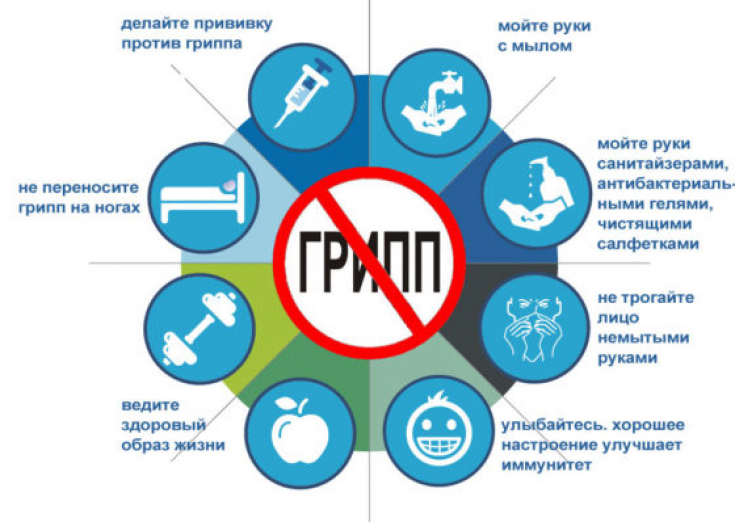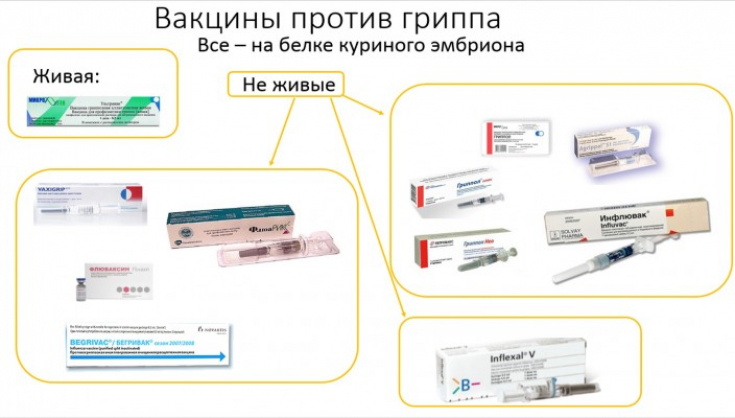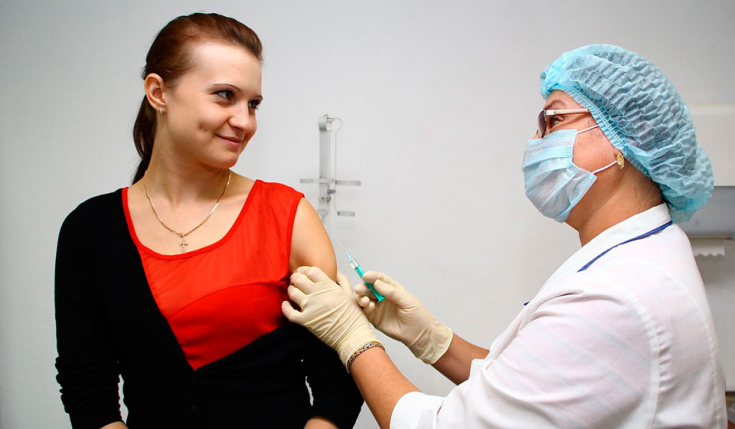Influenza — viral disease with dangerous consequences. Both an adult and a child can suffer from it. The best way to prevent is vaccination, which must be done even before the peak of the epidemic, in order to be fully armed by the beginning. But vaccine — is also a serious test for the body, because it receives a dose of a weakened virus. Therefore, it is important to notice complications after vaccination in time — atypical for this medical procedure. They can occur due to ignoring contraindications or non-compliance with the rules of behavior after the administration of the drug. The editors of estet-portal.com will tell you how to avoid the negative consequences of vaccination.
- What are the complications after vaccination
- Are contraindications to vaccination
- Vaccination Complications: How to Avoid
What are the complications after vaccination
Influenza — the most reliable way to protect against this virus. In order for it to really only benefit, you need to follow the rules of vaccination, be able to notice atypical symptoms in time. It is important to distinguish between the body's normal response to a vaccine and complications. The first ones are not considered dangerous, this is a typical way our immune system reacts to the introduction of a vaccine. And the latter are dangerous.
Possible reactions to flu vaccine:
-
swelling of the injection site and redness;
-
painful sensations;
-
dizziness;
-
temperature;
-
worsening of appetite;
-
insomnia;
-
allergy at injection site;
-
Slight enlargement of lymph nodes.
Read also: Vaccination of adults — what is important to know

These symptoms will disappear after a couple of days. But if the condition only worsens, you should call a doctor. complications after vaccination against influenza virus include:
-
neuralgia;
-
cramps and spasms in legs, hands;
-
reduction of platelets in blood;
-
feeling of numbness of limbs;
-
acute allergic reaction.
The problems described above do not occur if the vaccine preparation has been properly stored and the vaccination rules have been followed.
By the way, the injection site can itch — it is important not to comb it so as not to get allergies and infection of the skin.
Read also: Protection flu — popular myths and practical advice
Are contraindications to vaccination
Complications after vaccination can also appear if contraindications are ignored. Like any medical drug, the vaccine has its own recommendations and warnings. So, it cannot be done in the case:
-
allergic dermatitis;
-
exacerbations of chronic diseases;
-
colds;
-
neurological diseases;
-
Children under 6 months of age;
-
in first trimester of pregnancy;
-
if you are allergic to components of the vaccine.
If you want to make a so-called live-type vaccine, then they should not be given to children under the age of three years, pregnant women, people with immune problems. And after a cold, it is better to postpone the vaccination for at least two weeks, so that the body has time to recover.
Read also: Should vaccinate my child

Complications after vaccination: how to avoid
Complications after vaccination may appear not only because of ignoring contraindications or as a result of improper storage of the vaccine. Also, problems will arise if you behave incorrectly after vaccination.
Therefore, for effective flu prevention, follow these rules:
-
Don't hurry to leave — after you have been vaccinated, don leave the hospital and rush to work or school. It is recommended to sit near the office or in the waiting room for about half an hour. Why is this needed? In this way, the development of severe allergic reactions after vaccination can be minimized. That if they appear, you will be given first aid immediately.
-
The injection site should not be wetted intensively for about a day — i.e., no one forbids you to swim, but it’s not worth keeping the area under water for a long time. Also, do not rub it with a washcloth, do not heat it. All this can negatively affect your well-being.
-
Diet — after vaccination for some time, exclude foods that cause allergic reactions in the body from the diet. So, give up citrus fruits, nuts, store-bought juices, cheeses and exotic fruits or vegetables. This is necessary in order to timely distinguish an allergy to an injection from food.
-
Refrain visiting crowded places — a few days after vaccination, do not go to large shopping centers, concerts or public events. At this time, our body is somewhat weakened, because it processes the antibodies that are in the vaccine. That is its resource is not enough to fight other viruses.
Try to build your schedule so that you can stay at home for a while and observe your condition. Redness and tightening of the injection site — this is a normal reaction of the body, the intervention of a doctor is not required. It is important not to miss the moment when the reaction to the vaccine will be atypical — and contact doctor.
Read also: Flu season is coming — modern approaches to treatment and prevention

Complications after vaccination are possible if the vaccine was not properly stored or the patient himself did not follow the doctor's recommendations. It is important to distinguish between typical body reactions to a vaccine and those that are a reason to see a doctor. So, after vaccination, a headache, a slight increase in lymph nodes, fever, dizziness may appear, the injection site may swell a little and blush. These symptoms will go away after a couple of days. If the same condition only worsens, you need to consult a doctor. Simple rules will help to avoid complications: a few days after vaccination it is better not to walk in crowded places, remove citrus fruits and cheeses from the menu, do not rub and do not wet the injection site for a long time.
Read also: Types of influenza viruses and the main clinical symptoms of the disease
You may be interested in: Arm Exercises.






Add a comment